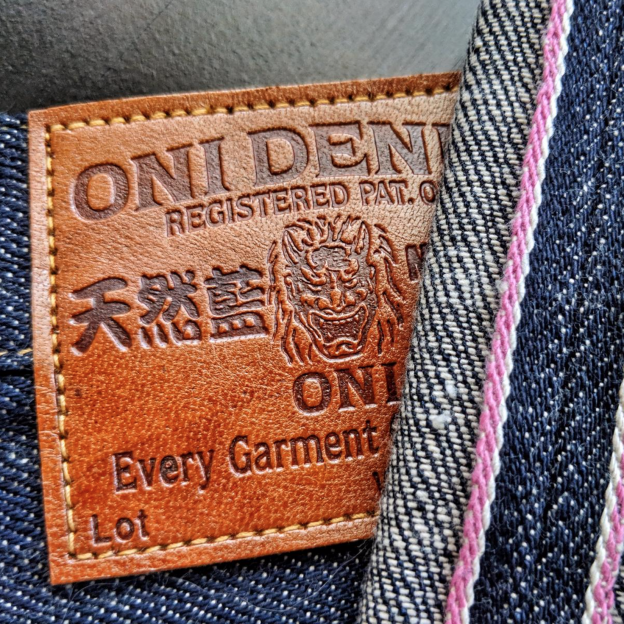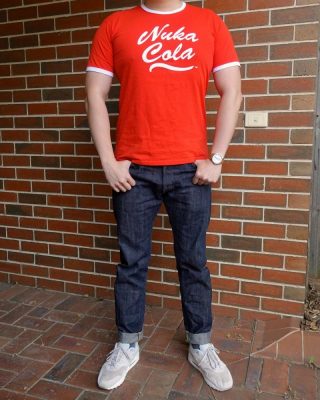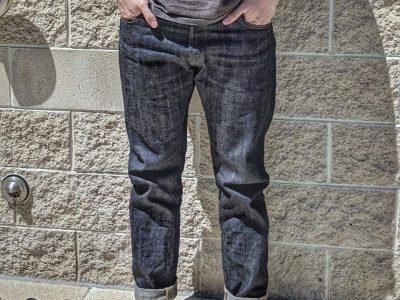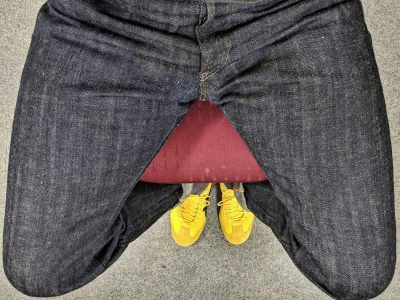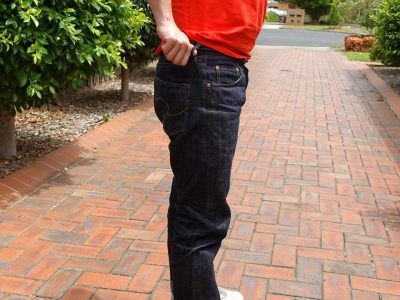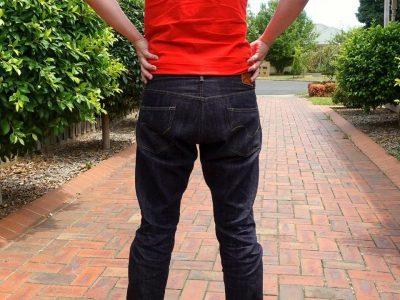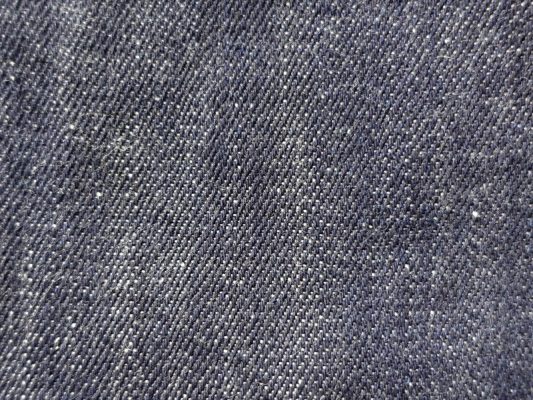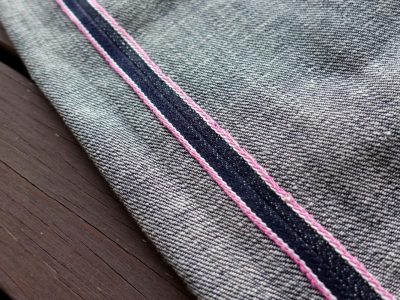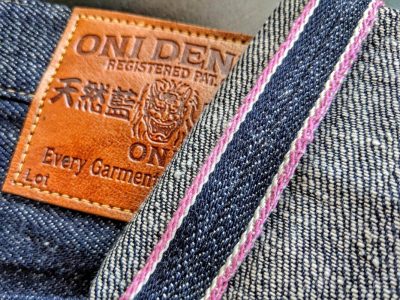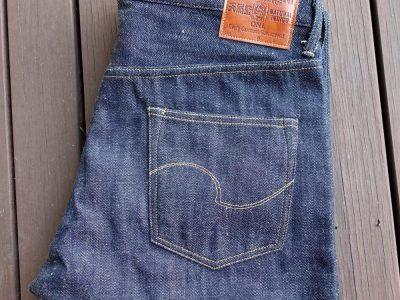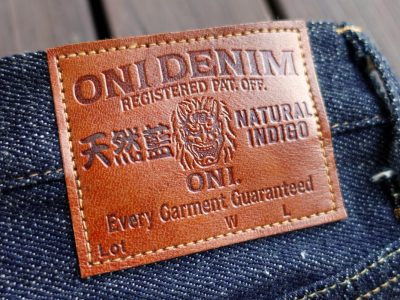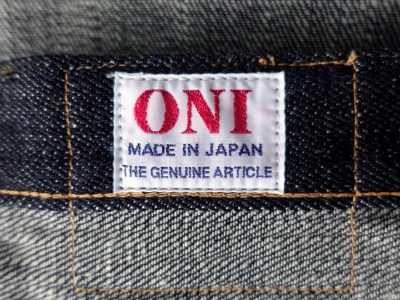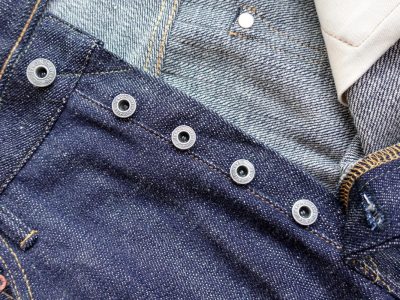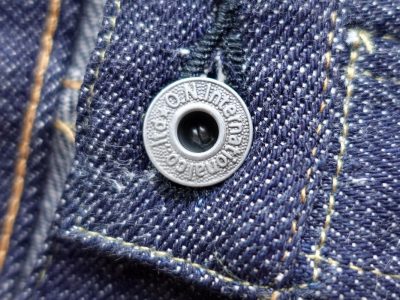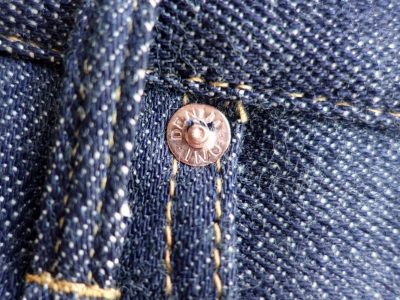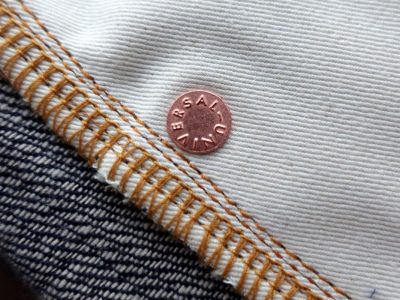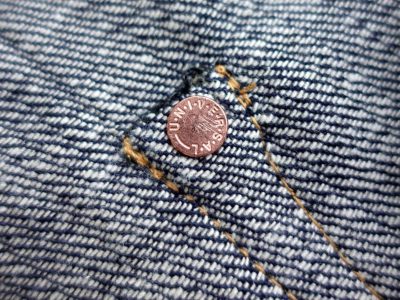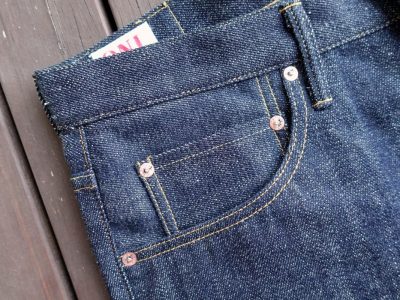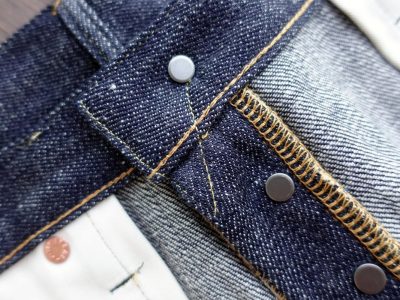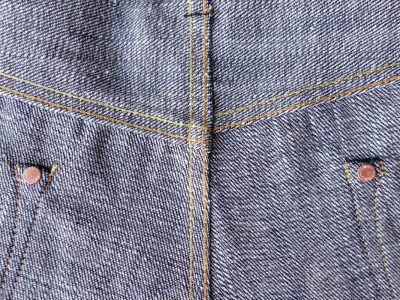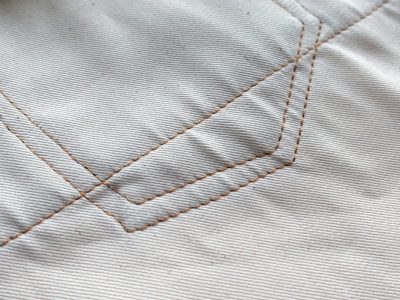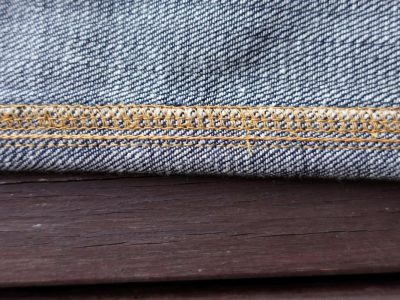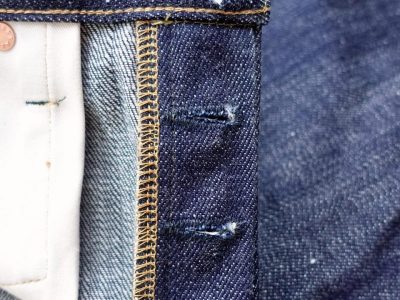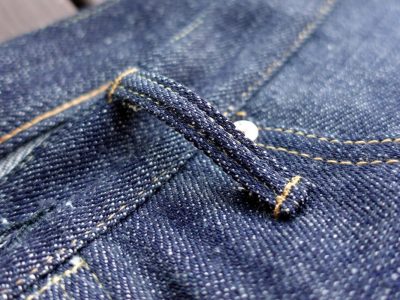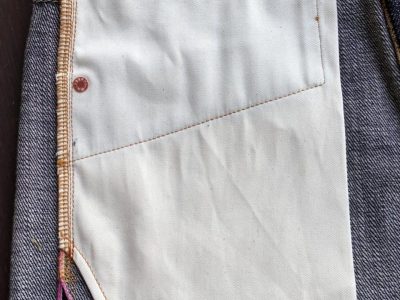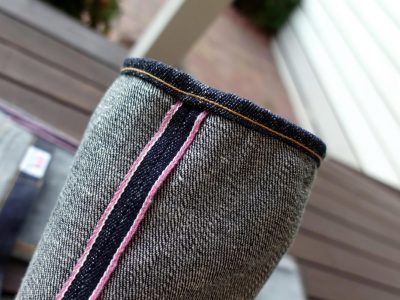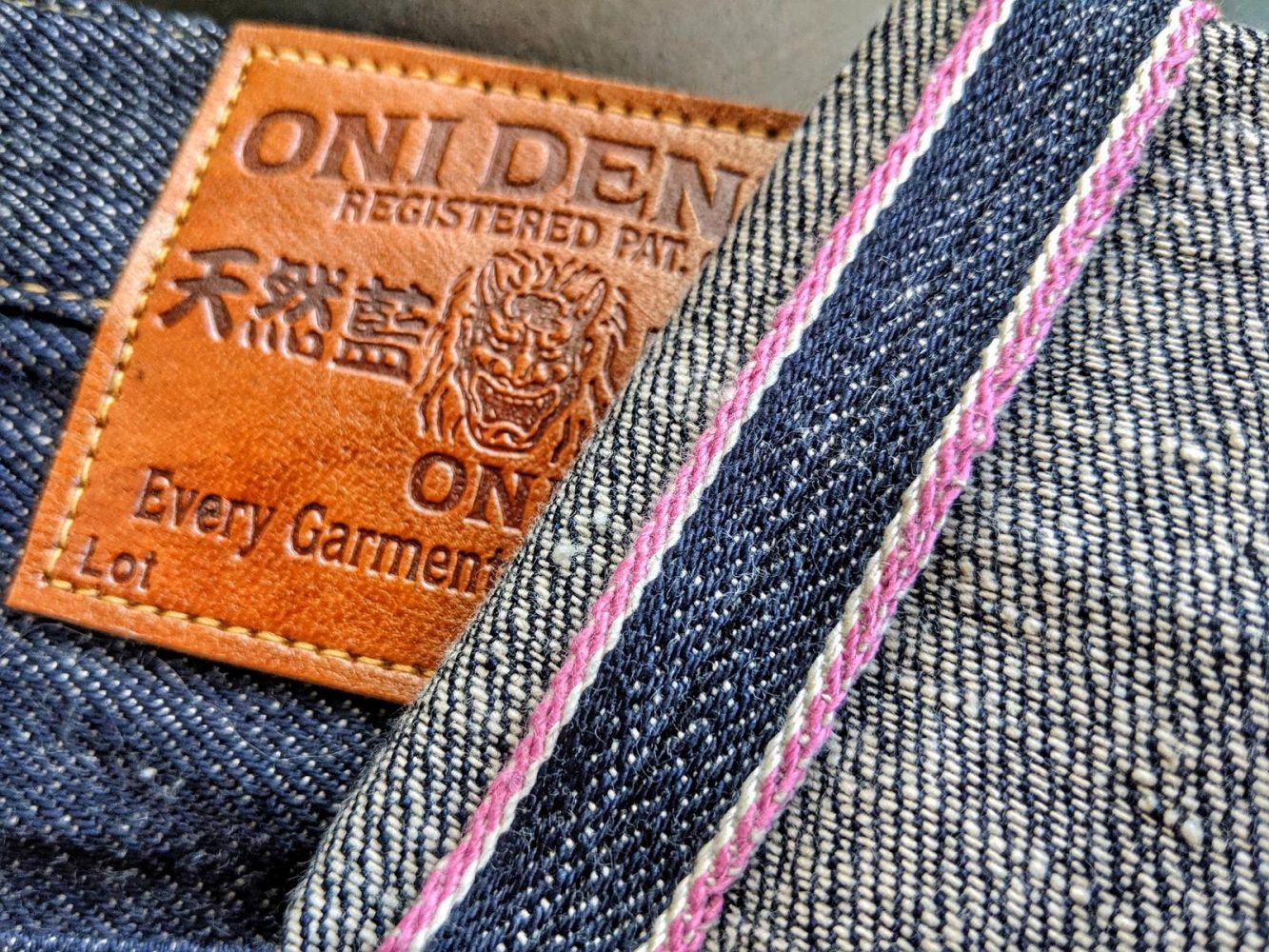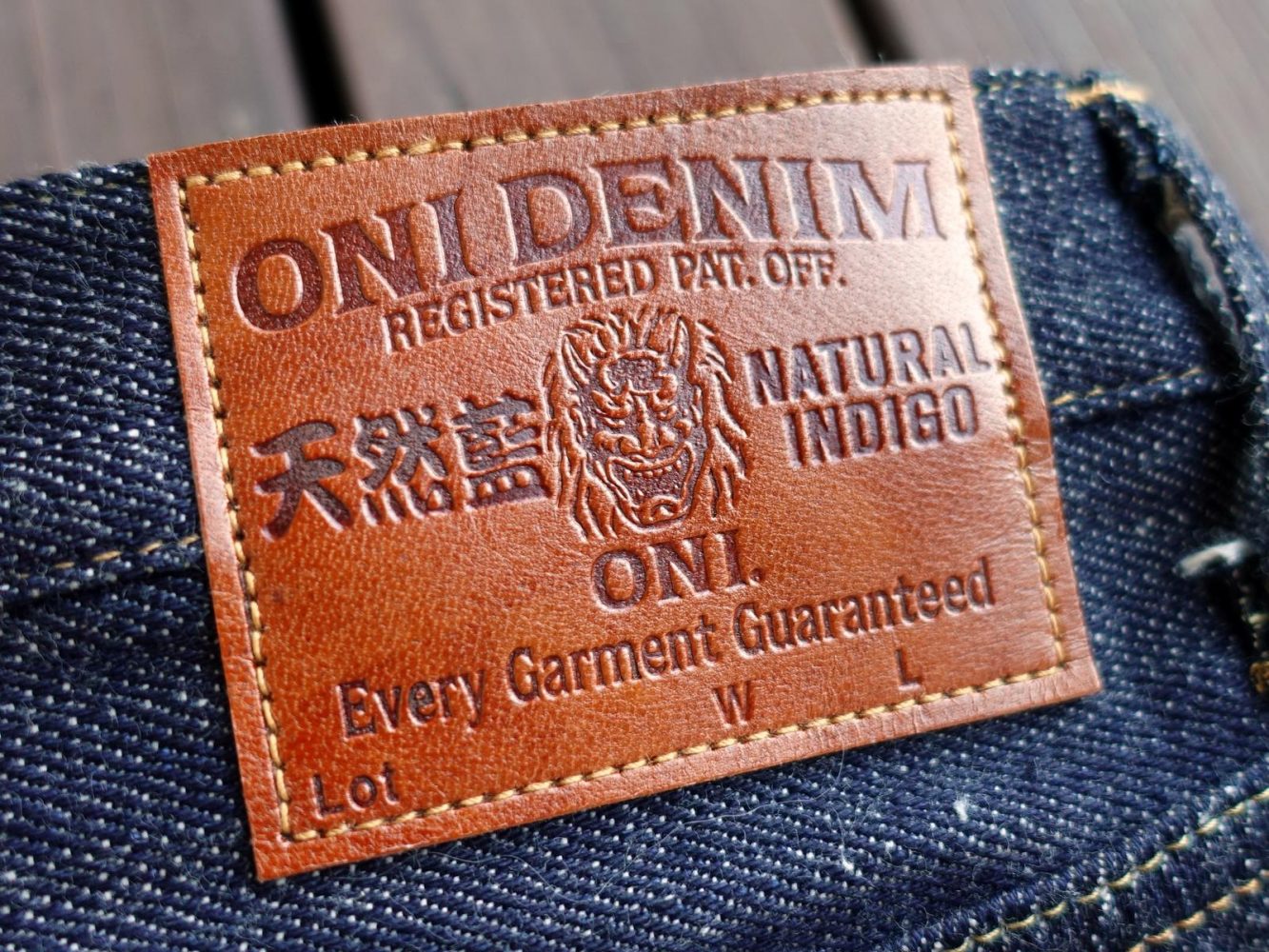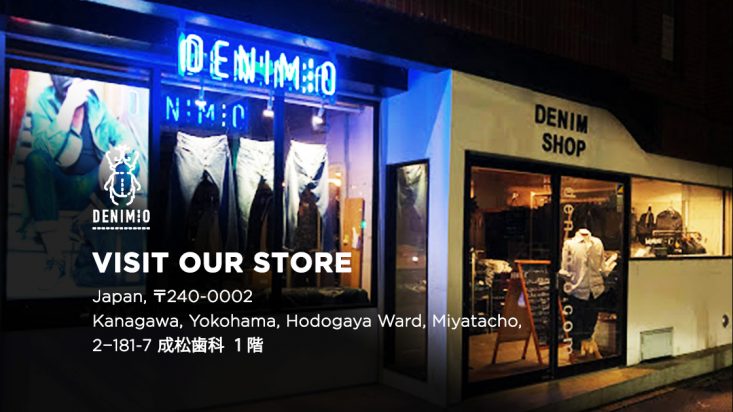A full review of ONI 982 KIRAKU has done by the denim expert ‚Indigoshrimp‘. It’s time to share with you why ONI Kiraku does worth money, how special the fabric is, what technique and details did the brand use, and what Indigoshrimp thinks about ONI 982KIRAKU. Get ready to explore and let’s rock!
*Click the photos for the best quality!
Welcome back to Indigoshrimp, and I got something special for you today!
I’ve been lucky enough to obtain an early sample of this pair of jeans via the good folks at Denimio. The timing was perfect too since I was able to field test the Kiraku during the Australian heatwave that’s recently swept the continent. I’m hoping this early review might help with your purchase decision when the Kiraku drops at Denimio.
Weighing in at 12 oz, it would be natural to assume that this denim is relatively flat and uninteresting compared with heavy weight fabrics, but the Kiraku might surprise you! For the folks who are interested in the history of the Oni Denim brand, check out my earlier review of the Shin Secret Denim. Otherwise, let ’s have a look at the Kiraku denim.
FIT
The sample pair being reviewed here will be released as the ONI-982KIRAKU. Another cut, the ONI-602KIRAKU, will be available too, which is similar to the previous 622 cut. Oni fans would know that the 982 is a high tapered cut and a relatively new addition to Oni’s lineup.
The photos of the fit were taken on days 1 & 2 after quick, cold water soak to shrink up the denim a little.
In very broad terms, the 982 is a modern, lifter’s style cut with a relatively high waist. I think this is fairly evident in how this pair has fit my frame.
In the top block, there’s plenty of space for the pelvis and in the seat. The thighs are generous and can accommodate athletic legs. From just above the knee, the jeans taper rather strongly, finishing with a narrow opening near the ankles.
The fit is very similar to Oni’s well known 622 cut, the major difference being the higher rise on the 982. The rise is high enough that you won’t need to worry about any undergarments showing, regardless of how low you squat!
On my sample pair, the inseam is long enough for a double cuff after the initial soak. For reference, my measurements are 185 cm and 93 kg, wearing size 36 in the 982 cut.
*Click on the photos for the best quality!
FABRIC
The Kiraku is a 12 oz unsanforised, RHT denim, woven on a truly vintage shuttle loom using natural indigo rope dyed warp and beige dyed weft.
Oni’s aim here appears to be two-fold… One, to create an enthusiast level denim which is light enough for harsh summer days. Two, to find the lowest weight limit with which Oni could produce a Secret denim texture.
It is interesting to consider, too, that the kanji for Kiraku, 楽, translates as “comfort” or “ease”. This had been confusing for me initially, as I was more familiar with the Mandarin translation of “happy” or “joy”.
The weave tension is extremely low for this denim. The overall structure is fairly loose. The relaxation of the weave, combined with a 6 x 6 year structure (traditionally used on heavier denim), has resulted in a fabric which is variegated and irregular despite its relatively lightweight.
The Kiraku would have been challenging denim to weave – kudos to the mill!
The porous weave is evident on both wearing and observation. Similar to Oni’s previous extra-low tension 14 oz fabric, you can observe some light passing through the denim when you hold these jeans up towards the sun. The same effect with air can be felt when the jeans are worn – this denim breathes very well, in comparison to the usual 14 oz + denim that is common in this hobby.
The warp face, apart from being irregularly irregular due to slubbing, is also moderately neppy. The streaks of the slubs are rather lengthy compared with other slub denim, giving the Kiraku a vertical flavor. This verticality, combined with the relative hairlessness of the warp face, further imparts a crispy, almost dry look to the Kiraku.
All things considered, the Kiraku is certainly much more intense than the usual 12 oz denim.
*Click on the photos for the best quality!
The textures on the warp and weft faces are rather different. The warp is rougher – bumpy, slightly dry, full of notches & ridges. The weft is smoother, more luxurious even, and gives comfort to the skin when worn. Running my fingers on the warp face, I’m reminded of my previous experiences with the fluffy & somewhat dry cotton from the Americas. On the weft side, I’m certain there has been liberal use of long staple cotton.
The color of the denim is rather special too. I do not know the full details about the dye stuff being used (as in, the plant origin of the natural indigo), though my understanding is that this is rope-dyed natural indigo denim. Certainly, I can confirm the rope dye method by examining loose yarn.
The natural indigo dye would explain the curious variation in shades of blue this denim displays under different lighting conditions. The rope dyed nature of the warp yarns should mean the denim fades faster and with more contrast than a traditional natural hank dye fabric. I would describe the blue of this denim to be clean, vivid, moderately dark, and organic.
The weft is gently colored too – a soft tinge of beige, perhaps cheese dyed, the color penetrating through the yarn.
Details
*Click on the photos for the best quality!
The detailing of these jeans is not changed from Oni’s previous releases in the last one to two years. In other words, all the bells & whistles have been installed, the arcs remain the same shape.
Oni’s patch design and the high-grade deerskin utilized for the patch are some of the nicest in this hobby. This particular leather ages extremely gracefully, though it can burn & shrivel in the dryer – for best results, always air dry your Oni Denim jeans.
The woven tag makes its trademark appearance on the inside of the waistband. Having previous experience, I know this tag will age in its own way to match the evolution of the denim & indigo. Fully customized buttons and external rivets feature. These doughnut buttons on the five-button fly, in particular, have great texture. Certainly, an upgrade compared with the laurel wreath buttons on my very old pairs of Oni Denim jeans. The punch-through rivets are customized Universal burr rivets. The copper on these rivets will oxidize over time.
Of course, hidden Universal rivets are included too, just under the bar-tacking securing the back pockets.
Overall, the sewing is neat and streamlined.
Lemon and orange threads dominate, and the colors blend together smoothly. The construct is not strict-reproduction based however, so don’t expect big, fat cotton threaded chain-stitching. Regardless, the sewing is dense and fairly regular. Important structural elements such as buttonholes, waistband, and fly seams are expertly finished.
The five belt loops are raised in the center. The attachments are neatly tacked. The pocket cloth returns to the plain but sturdy twill fabric used prior to last year’s Aizumi denim release. Not quite as monstrous as some Kurashiki sail cloth I’ve seen, but definitely more comfortable and less obtrusive against the thighs. Finally, the selvedge ID pays homage to the Secret Denim, with a slightly different configuration yet featuring the same pink threads.
Thoughts
In reviewing this new Kiraku denim, I thought there were two considerations worth exploring which are in line with Oni Denim’s development goals for this new fabric. The first question for me would be, is the Kiraku a good answer to the dilemma of wearing Japanese denim in hot weather? The other consideration would be, how does the Kirakucompare with Oni’s recent headline denim, which includes heavy-hitters such as Shin Secret, Aizumi, Kuroai, etc.?
Let’s talk about denim weight and weather.
Within the denim hobby, it is common to see a focus on heavier fabrics, especially for folks who are just starting out. Many enthusiasts, if they delve deeper into the Americana / retro menswear branches of the hobby, find themselves gravitating back towards mid-weight denim between 14 to 16 oz. Regardless, outside of strict reproduction fabrics designed to imitate pre-1960’s denim, it is very rare to come across denim that is lighter than 13 oz which would be considered interesting or worthwhile.
Further to this context is the fact that everybody has different tolerances when it comes to clothing thickness and ambient temperature. Denimheads can exist on a spectrum – at one extremity you have guys who would wear 21oz Iron Heart denim during a South East Asian summer, and on the other, there are people who refuse to wear anything but shorts once the temperature climbs into the 30’s.
As I mentioned earlier, I tested the Kiraku during the recent Australian heatwave, the hottest day in my area is 46 degrees Celsius, and I could wear the Kiraku without issue. Against the skin, not only was the denim breathable, but also the weft face was comfortable & relatively smooth. At the same time, as a texture geek, the Kiraku adequately held my attention, and I was not bored with the denim at all – in fact, I was suitably impressed by this denim, and upon touching it I’m still surprised that this intensity of grain & texture could be achieved at such a low weight. The contrast between hand-feel of the warp & weft faces is worth examining too.
This deliberate engineering of the denim indicates to me that, in many ways, the Kiraku was designed with the more advanced enthusiast in mind – someone who expects a good balance between comfort and texture, someone for whom the fad of ultra-heavy denim has worn off over the years. To answer the first question then, I’d say that the Kiraku is a very well rounded solution to the perennial “which denim to wear during summer” dilemma.
On the other hand, Kiraku could also be a good idea for beginners. Perhaps you might be anxious about the discomfort of heavy jeans, or maybe you simply do not wish to sacrifice comfort for the novelty of wearing cotton armor. Kiraku, then, is a perfect introduction to the weaves and indigo hues that are available at the top end of this denim hobby. It is a shorter leap to make, after all, transitioning from 10 oz mall-brand jeans to this 12 oz denim, compared with a deep dive to the 20 oz Secret denim.
Lighter weight aside, is Kiraku comparable to Oni’s heavier denim?
Oni wanted to see how low they could go with denim weight whilst still maintaining a Secret denim texture. To be completely realistic, of course, a 12 oz denim cannot be as detailed as a 20 oz denim – there’re just so much less thickness and cotton to work with – though I must say that I’ve never seen another lightweight fabric which even begins to approach the complex hand-feel of Kiraku. So, whilst Kiraku is slightly flatter and less complex compared with the original Secret denim, it’s perhaps best to think of the Kiraku as the 12 oz manifestation of the Secret denim weave, rather than trying to compare apples with oranges.
The natural indigo dye is a welcome contrast to the recent greens and inks which have tinted Oni’s headline denim. You can’t go wrong with a soothing, organic blue. This shade of indigo is appealing and approachable, making the Kiraku rather versatile denim that will easily match any T-shirt or sneakers on a hot summer day.
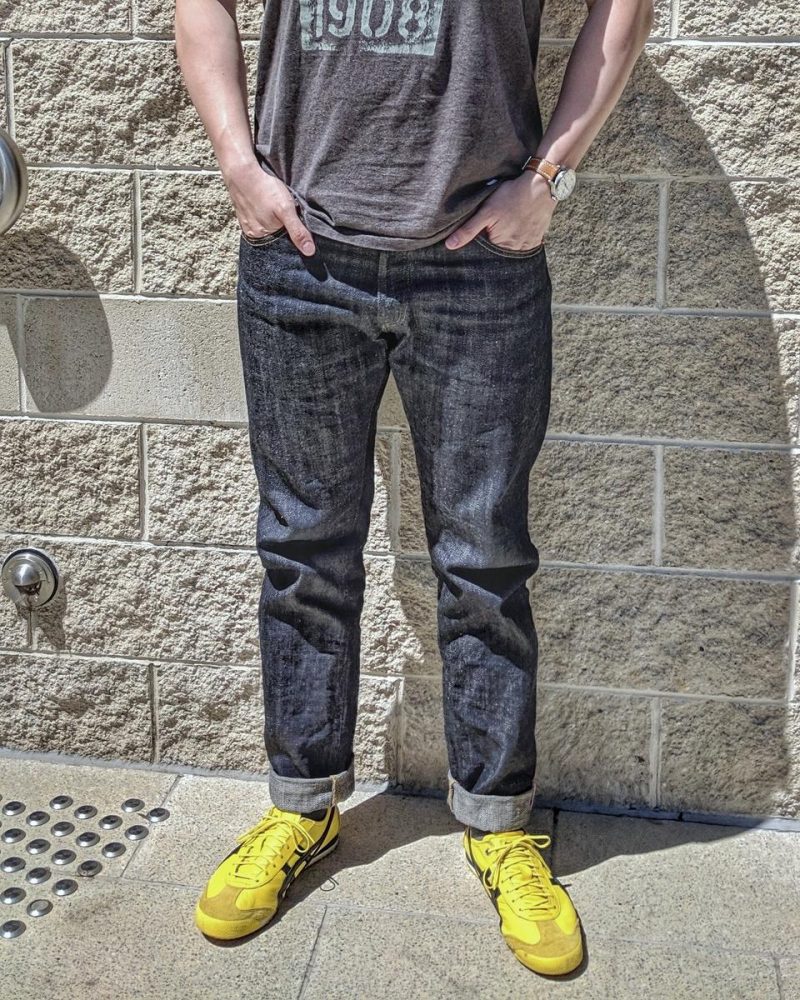
To answer the second question then, I’d say Kiraku is best conceptualized as a new standard in lightweight denim weave, its current manifestation being versatile & approachable. Therefore, the Kiraku definitely has a place among Oni’s enthusiast-grade fabrics.
Are there any downsides to this denim, you might ask? Well, to balance out this review, I should mention that a combination of low tension, loose weave and lightweight could potentially impact on the durability of the Kiraku denim compared with heavier, denser denim. With regards to durability, I cannot draw any conclusions yet – only time will tell.
On a different note, this is my first experience with Oni’s 982 cut, and I must say I’m enjoying Oni Kiraku 982immensely thus far.
I’ve noticed it is fairly similar to Tanuki’s HT cut, and again I will comment that the two brands share many similarities in their jeans. (If examined closely, you will notice the Kiraku denim has certain similarities with Tanuki’s Kaze denimtoo!)
The 982 high tapered cut works well with my body shape, and proves to be a much improved “export” cut compared with Oni fits from previous years, as far as non-Asian markets are concerned. I should say this cut will probably not work well for slim people, as the thighs and seat will be too baggy if you don’t have some meat on your bones. For everyone else, the 982 will integrate nicely into modern Americana, casual-wear and street-wear wardrobes.
All in all, the Kiraku certainly sets a new standard for light denims. Apart from presenting the enthusiast with a neat balance of texture and comfort, the Kiraku denim is an awesome achievement from the perspective of denim engineering. The texture: weight proposition is ridiculously good, and the indigo hues from the natural dye is pretty spectacular in sunlight too! I very much look forward to seeing this particular weave being made with different indigo hues and sulfur dyes in the future.
At an RRP of JPY23,000, the ONI-982KIRAKU can be considered to have great value, factoring in the ridiculous R & D effort over years that have been invested in its creation, and the use of natural indigo dye of course. This newest release from Oni Denim is an easy recommendation for both beginners & collectors, and if you’re specifically looking for a pair of summer jeans, the Kiraku will need to be one of the top picks.
Check them out first, and at the best pricing, with Denimio. Early reviews are something I’ve been hoping to do on this blog for a while, and rare is the opportunity to organize this with a Japanese maker, so many thanks to the cool guys & girls at Denimio for getting me lined up.
We guess all the informative things above are clear and make you know more about ONI-982KIRAKU. We also have share insight story about ONI Kiraku denim on our previous blog post, so click here to read more.

